This content has been brought to you in association with HP ZED, a 'pop up shop' for creatives in London's Soho from Monday 29 September to Friday 10 October 2014. Register for ZED today. Phil Hurrell will be joining Gavin Graham of Double Negative at a special session: Should you work for a big studio or boutique agency?
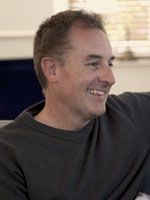
Phil Hurrell has spent much of his 27-year career working in large companies. But when the animator - who's due to speak at HP ZED London next month - left Prime Focus to set up his own, Coffee&TV, he decided to do something different. He decided to think big. By, er, thinking small.
In other words, rather than borrow large amounts of money and set up a huge facility, Hurrell and his fellow co-founders funded themselves, and purposely set out to create a small, lean outfit.
The technology had recently become available to do sophisticated animation and 3D work with a light, cheap and portable equipment. So they thought: 'Why not just do it all ourselves?'.
Early doors
"We started by working out of our lounges, the four of us," he explains. The idea was to move the focus away from big technology and big buildings, and on to the people themselves.
"Coffee&TV is a core of very talented people who can run a job," Hurrell explains. "They then spawn a much larger network, dependent on the job. So I can be working on an animation or a VFX job with friends of mine who run a studio in Barcelona, and another guy who's over in Holland. And they're good friends who I've worked with many times."
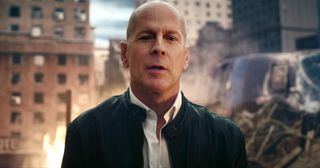
If this sounds oddly familiar, there's a reason for that. Because, Hurrell says, Coffee & TV has essentially been inspired by the ethos of a production company.
Get the Creative Bloq Newsletter
Daily design news, reviews, how-tos and more, as picked by the editors.
People know people
"If you go into a well known production company, their offices are modest," he points out. "There are the core people who service every single job. So a production company is chosen by a client for its particular director - of which they may have several. But that director does that sort of thing particularly well, so the client's chosen him.
"He'll then choose a DOP based on what that particular job needs. That DOP chooses his gaffer, he chooses his grip, etc, etc. Wardrobe, set dress people, they all get chosen on this basis - that, 'I've worked with them before, I trust them, I'll give them a call.'
"You assemble this team for a project, you do the project and then that team dissipates. So, when you ramp down and you're doing your post-production work, you don't get film crew being paid to stand around every day."
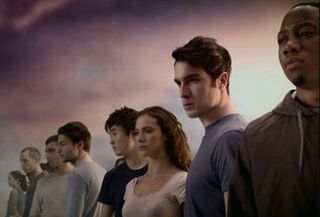
In the world of VFX, though, that often does happen, he maintains. "At a big facility house, a client pays is also paying for when you're not doing some work there," Hurrell argues. "There is a big fixed cost that doesn't exist for us."
Outsourcing the hardware
For example, when Coffee&TV needs a render farm, they don't go out and buy a 1000-node render farm. Instead: "We send it to a render farm that happens to have a thousand nodes and we pay on a use-basis. We do our storage in the cloud. It goes off to various servers and gets kept there, absolutely secure and when we need it back we extract it. It's a brilliant business model."
So why isn't everybody doing it? "Some are," he responds. "But it takes a certain type of person to have the courage to believe in themselves to the extent where they'll put their money where their mouth is, and take on that added stress of the business side."
If they do, though, they'll find they spend less time on management and politics and more on creating work they're truly proud of, Hurrell believes.
Belfast to China
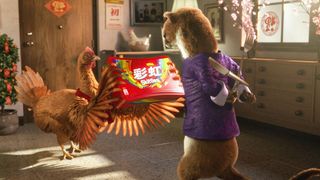
He gives the example of a Skittles ad Coffee&TV recently produced for DDB Guangzhou in China.
"We did the whole thing - there was no chain; we were the production animation company," he says. "I did a treatment and we did a production schedule that was eight weeks flat, believe it or not. It's the best piece of work I've ever done in my life. And I look back now and think: 'How did we do that in eight weeks?'"
Right now they're working on two character-based, animated commercials for the Belfast Telegraph in Northern Ireland, and they've just finished an ad for Dominos Pizzas, which goes out on British TV tonight. "This was photorealistic goldfinches, full frame," he explains. "Again, we had just about six weeks to produce this piece of work, and we're incredibly pleased with it."
Keeping things simple
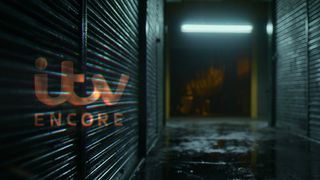
Originally, he admits, Coffee&TV never dreamed they'd be creating work of such high quality, and for such big clients. "We thought we'd do little cheap jobs that the big facilities didn't want - kind of like the crumbs on the floor," he smiles. But Hurrell is adamant that Coffee&TV will not come full circle and grow to become the kind of large studio they all left.
"I think it's an impossibility in today's climate," he argues. "Soho is now £70-80 a square foot. How can you possibly afford huge receptions like some of the big studios have, and have a client walk in there with a limited budget and think: 'The floor area of this reception alone is costing £100,000 a year - that's got to come from somewhere'?"
Coffee&TV couldn't be more different, he says. "You walk into our facility and it's almost like a cottage where you walk in the door and you're in the lounge. We're about efficiency."
See Phil Hurrell speak at HP ZED
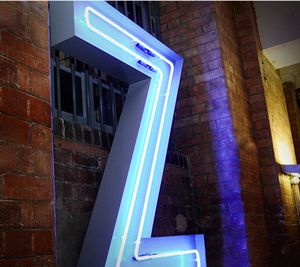
Phil Hurrell will be joining Gavin Graham of Double Negative at a special session at HP ZED London on Thursday 2 October entitled Should you work for a big studio or boutique agency?
They'll examine whether a large or small studio is the best place to advance your career. It's a big decision to make, so make sure you get the expert advice on offer at this must-attend session. Register to attend here!

Thank you for reading 5 articles this month* Join now for unlimited access
Enjoy your first month for just £1 / $1 / €1
*Read 5 free articles per month without a subscription

Join now for unlimited access
Try first month for just £1 / $1 / €1
Tom May is an award-winning journalist and editor specialising in design, photography and technology. Author of the Amazon #1 bestseller Great TED Talks: Creativity, published by Pavilion Books, Tom was previously editor of Professional Photography magazine, associate editor at Creative Bloq, and deputy editor at net magazine. Today, he is a regular contributor to Creative Bloq and its sister sites Digital Camera World, T3.com and Tech Radar. He also writes for Creative Boom and works on content marketing projects.
